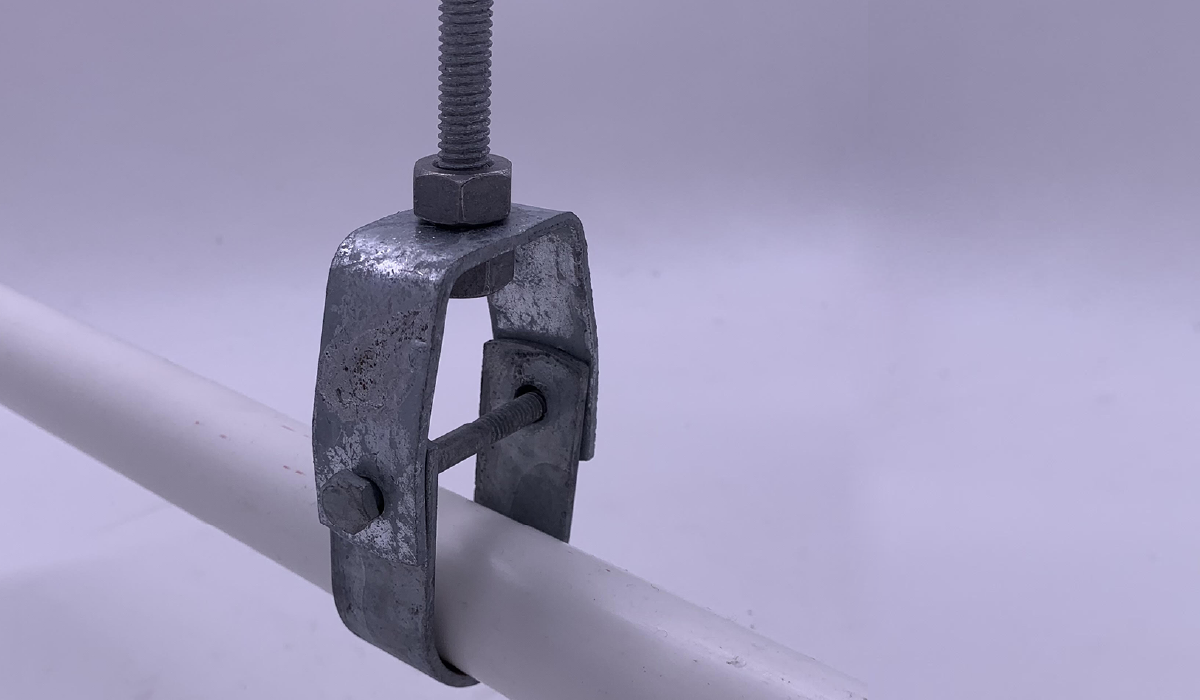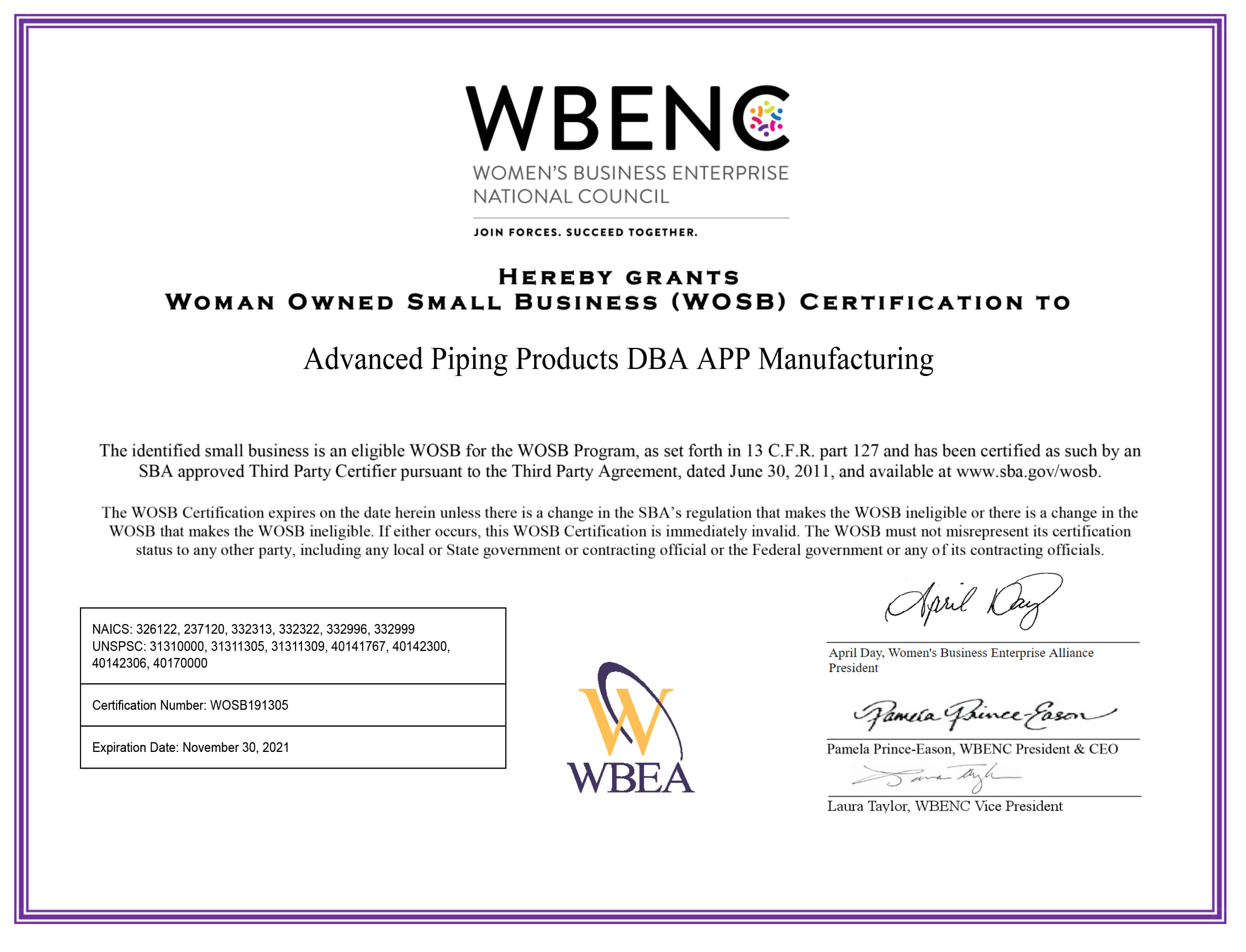
Need to suspend pipes and keep your pipe system corrosion-free? Clevis hangers might be the most useful and reliable pipe support you’ll find. Still, many piping pros overlook these handy supports—and miss out on long-term savings in the process.
Wondering what these pipe elevators are all about? Here’s what clevis hangers are and how you can use them to improve your pipe system.
What Is a Clevis Hanger?
Clevis hangers are pipe supports that are designed to secure hanging or elevated pipe runs. If you need to suspend piping from elevated beams or the ceiling, clevis hangers are a lifesaver.
Generally, clevis hangers include a yoke that connects to your support overhead. They also use a metallic loop to cradle your pipe. This cradle leaves room for vertical adjustment and harnesses your pipes securely in the air.
Clevis hangers can be crafted from many different materials, but quality hangers will be made from carbon steel, hot-dipped galvanized steel, or stainless steel. They also come in a wide range of sizes, stretching from a half inch to 30 inches across.
When Should You Use a Clevis Hanger?
Clevis hangers are recommended for the suspension of pipes. They’re also especially useful if you need to install drainage pipes or sloped runs.
Why?
In addition to being sturdy, clevis hangers let pipes move naturally while keeping them from collapsing or crashing into surrounding objects. These hangers also allow for vertical adjustment. That means you can adjust pipes to avoid sagging or corrosive pooling.
Here are some advantages to using clevis hangers.
They suspend piping.
Suspending piping can help you do everything from prevent fires to encourage drainage or save space. It also can lengthen the lifespan of pipes by lifting them off of corrosive elements, such as dirt or grime.
The advantage?
Liquid and microbes can jump-start the corrosion process. Worse yet, corrosive soil can quickly cause metal to deteriorate. By suspending pipes, you can preserve their surface and keep them lasting longer.
They encourage drainage.
Without proper drainage, water can form stagnant pools or carve grooves into the interior surfaces of pipes. In turn, erosion corrosion can tear away metal. Eventually, these corrosive sections can burst and cause massive damage. Because they allow you to suspend pipes and angle them, clevis hangers help you promote a safer flow—protecting your pipes from corrosion.
They secure dangling pipes.
Without proper pipe supports, suspended pipes are dangerous. When they move, expand, or vibrate, it increases the chance they’ll hit surrounding objects or come crashing down. Clevis hangers secure suspended pipes while letting them move naturally.
They stay strong in the extremes.
Especially when piping is elevated, it can be exposed to hot temperatures and thermal movement. These extremes can damage supports that aren’t built to withstand the elements. Clevis hangers are made to stay strong and support pipes in the face of high heat. In fact, APP’s clevis hangers have been tested to withstand 650° F. That means they can support pipes even when temperatures spike.
How to Choose the Right Material for Your Clevis Hangers
Because clevis hangers often support heavy, suspended pipes, it’s important to make sure they’re made of a material that fits your piping system. Here are a few popular materials that make up clevis hangers:
Carbon Steel
The biggest advantage of carbon steel is that it’s hard and durable. However, it is also vulnerable to corrosion. That’s why bare carbon steel may not be the best option if your pipes are operating in highly corrosive or outdoor environments.
Stainless Steel
Stainless steel combines the strength of carbon steel with a secret weapon: chromium. This addition gives stainless steel anticorrosive qualities. The downside? Stainless tends to be more expensive than more basic metals.
Galvanized Carbon Steel
You can also add corrosion resistance to carbon steel without having to spring for stainless. Galvanized carbon steel is carbon steel that’s gone through the galvanization process. With hot-dip galvanized steel, the product is dipped in a molten vat of zinc. This zinc layer protects the hanger’s surface from corrosion.
Learn More About Pipe Supports
Clevis hangers can be a solid option when you need to suspend and restrain pipes. And there’s a whole world of pipe restraints that can help you get the most out of your pipe system. Read our Complete Guide to Pipe Restraints to get an in-depth look at the best pipe supports for your system.






